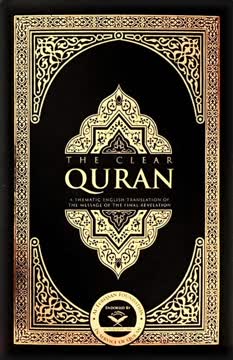Key Takeaways
1. Allah is the One, Almighty Creator and Sustainer.
Allah! There is no god ˹worthy of worship˺ except Him, the Ever-Living, All-Sustaining.
Absolute Oneness. The core message of the Quran is the absolute oneness of Allah, the sole Creator and Sustainer of everything in existence. He has no partners, no offspring, and nothing is comparable to Him. All authority belongs to Him alone, in this world and the next.
Infinite Power. Allah's power is limitless; He creates with a single command, "Be!", and it is. He controls the heavens and the earth, gives life and causes death, and provides for all beings without need. His knowledge encompasses everything, seen and unseen, from the smallest atom to the vastness of the universe.
Beautiful Names. Allah is described by numerous beautiful names and attributes, such as the Most Compassionate, Most Merciful, All-Knowing, All-Wise, Almighty, and Forgiver. These names reflect His perfection and majesty, and believers are encouraged to call upon Him by them.
2. The Quran is Allah's clear and preserved revelation.
Indeed, ˹it is˺ We ˹Who˺ sent this ˹Quran˺ down on the Night of Glory.
Divine Source. The Quran is presented as the final, complete, and perfectly explained revelation from Allah to humanity, revealed to Prophet Muhammad (ﷺ) through the angel Gabriel. It confirms the truth found in earlier scriptures like the Torah and the Gospel, serving as a supreme authority.
Clear and Protected. The Quran is described as a clear book, free from inconsistencies, and made easy to understand for those who reflect. Allah promises to preserve it from corruption, ensuring its message remains intact throughout time.
Purpose and Impact. The Quran serves as a guide, a reminder, a warning, and good news for believers. It aims to bring people out of darkness into light, clarify matters of faith and law, and provide healing for the heart. Its recitation is a source of comfort and increased faith for the devout.
3. Prophets were sent with one consistent message.
We never sent a messenger before you ˹O Prophet˺ without revealing to him: “There is no god ˹worthy of worship˺ except Me, so worship Me ˹alone˺.”
Universal Call. Allah sent messengers to every community throughout history, from Adam to Muhammad (ﷺ), all conveying the same fundamental message: worship Allah alone and live a righteous life. These prophets served as warners and deliverers of good news.
Shared Stories. The Quran recounts the stories of many prophets, including Noah, Abraham, Joseph, Moses, and Jesus, highlighting their struggles, perseverance, and Allah's support against those who denied them. These narratives serve as lessons and reassurance for believers.
Chain of Prophethood. The prophets are presented as a connected chain, each confirming the truth brought by those before them. Prophet Muhammad (ﷺ) is the final link in this chain, the seal of the prophets, whose coming was foretold in earlier scriptures.
4. Life is a test for accountability on Judgment Day.
˹He is the One˺ Who created death and life in order to test which of you is best in deeds.
Purpose of Creation. Life on earth is not without purpose; it is a trial to distinguish those who believe and do good from those who disbelieve and do evil. Every individual's actions are recorded by vigilant angels.
Inevitable Reckoning. The Day of Judgment is a certain reality, an appointed time known only to Allah. On this day, all souls will be resurrected and gathered before their Lord to be held accountable for their deeds.
Justice and Fairness. On Judgment Day, perfect justice will prevail. No soul will be wronged, and everyone will be paid in full for what they have done, even the weight of an atom. Excuses will be futile, and one's own body parts may testify against them.
5. Believers are rewarded, disbelievers are punished.
Surely those who believe and do good will have Gardens under which rivers flow.
Eternal Destinations. The outcome of the test of life is either eternal bliss in Paradise for the believers or painful torment in Hell for the disbelievers. These are the ultimate destinations, with no escape from the latter.
Paradise Described. Paradise is depicted as a place of unimaginable beauty and delight, with flowing rivers, abundant fruits, pure companions, and eternal peace and security. Believers will receive their records in their right hands and rejoice in Allah's pleasure.
Hell Described. Hell is described as a raging fire, a terrible place of rest where the wicked will burn forever, tasting boiling water and pus. They will receive their records in their left hands, filled with regret and despair.
6. Righteous conduct is key to success and salvation.
Successful indeed are the believers: those who humble themselves in prayer; those who avoid idle talk; those who pay alms-tax; those who guard their chastity...
Pillars of Practice. Islam outlines key acts of worship that form the foundation of a believer's life:
- Testifying to Allah's oneness and Muhammad's prophethood.
- Establishing regular prayers.
- Paying alms-tax to support the needy.
- Fasting during Ramadan.
- Performing pilgrimage to Mecca if able.
Moral Excellence. Beyond ritual worship, believers are called to embody high moral standards:
- Honoring parents and relatives.
- Being kind to the poor and orphans.
- Speaking truthfully and justly.
- Controlling anger and forgiving others.
- Being patient and persevering.
Inner Purity. True righteousness stems from a pure heart and sincere devotion to Allah. Avoiding major sins and shameful deeds, and striving to purify one's soul are essential for attaining Allah's pleasure and the ultimate reward.
7. Lessons from the fate of past nations.
Have they not seen how many ˹disbelieving˺ peoples We destroyed before them?
Cautionary Tales. The Quran frequently recounts the stories of past nations, such as the peoples of Noah, 'Ad, Thamud, Pharaoh, and Lot, who were destroyed for their disbelief, arrogance, and rejection of Allah's messengers. These serve as warnings to present and future generations.
Consequences of Denial. These stories illustrate that denying the truth, mocking messengers, spreading corruption, and persisting in wrongdoing inevitably lead to divine punishment. No amount of wealth, power, or numbers can save a people from Allah's decree.
Signs for Reflection. The ruins and remnants of these destroyed civilizations are presented as tangible signs for people to travel and reflect upon, urging them to learn from history and avoid the same fate by believing and being mindful of Allah.
8. Humans have free will to choose their path.
We already showed them the Way, whether they ˹choose to˺ be grateful or ungrateful.
Innate Guidance. Humans are created with an innate inclination towards recognizing their Creator and distinguishing between right and wrong. Allah has shown humanity the two paths: the path of guidance and the path of misguidance.
Choice and Responsibility. While Allah's will is supreme, humans are granted the freedom to choose which path to follow. This choice comes with responsibility, as individuals will be held accountable for the decisions they make in this life.
Consequences of Choice. Choosing the path of gratitude and belief leads to Allah's mercy and guidance, while choosing the path of ingratitude and disbelief leads to straying and ultimately, punishment. Allah does not compel belief, but makes the truth clear.
9. Social justice and kindness are paramount.
Indeed, Allah commands justice, grace, as well as courtesy to close relatives.
Foundation of Society. Islam lays great emphasis on establishing justice and fairness in all aspects of life, from personal interactions to legal rulings. Believers are commanded to stand firm for justice, even if it is against themselves or their loved ones.
Compassion and Charity. Kindness, compassion, and generosity towards all people, especially the vulnerable, are highly encouraged. This includes caring for orphans, feeding the poor, helping the needy traveler, and freeing captives.
Respect and Equality. The Quran promotes respect for all human beings, regardless of their background, and emphasizes that true nobility lies in righteousness, not in race, wealth, or social status. It also outlines rights and responsibilities within families and communities.
10. Patience and trust in Allah are essential.
And seek help through patience and prayer.
Enduring Trials. Life is full of trials and hardships, and believers are encouraged to face them with patience and perseverance. These challenges are tests from Allah, designed to reveal the sincerity of faith and elevate one's rank.
Reliance on Allah. Putting complete trust in Allah is a hallmark of true faith. Believers rely on Him for help, guidance, and support, knowing that He is the best Trustee of Affairs and that His promise is always true.
Strength in Adversity. Patience and trust in Allah provide believers with inner strength and serenity in the face of opposition, persecution, and loss. They understand that victory and ease ultimately come from Allah, and they do not despair in His mercy.
11. The unseen realm impacts human choices.
Surely he and his soldiers watch you from where you cannot see them.
Angels and Jinn. Allah's creation includes beings from the unseen realm, such as angels and jinn. Angels are obedient servants of Allah, carrying out His commands, while jinn, like humans, have free will and can be believers or disbelievers.
Satan's Enmity. Satan (Iblis) is a jinn who defied Allah's command and became the sworn enemy of humanity. He and his followers constantly try to mislead humans through whispers, temptations, and false promises, aiming to divert them from the Straight Path.
Seeking Refuge. Believers are warned against following Satan's footsteps and are instructed to seek refuge in Allah from his evil influence. While Satan can tempt, he has no authority over those who sincerely believe and trust in Allah.
12. Worldly life is fleeting, the Hereafter is eternal.
This worldly life is no more than play and amusement, but far better is the ˹eternal˺ Home of the Hereafter for those mindful ˹of Allah˺.
Temporary Enjoyment. The pleasures and pursuits of this worldly life, such as wealth, children, and luxury, are described as temporary and fleeting adornments. They are a test, and their value is insignificant compared to the eternal rewards of the Hereafter.
Ultimate Reality. The true and lasting life is in the Hereafter. Believers are encouraged to prioritize seeking Allah's pleasure and the rewards of Paradise over the transient gains of this world.
Perspective and Action. Understanding the temporary nature of this life should motivate believers to be mindful of Allah, do good deeds, and prepare for the inevitable return to Him. Those who are deluded by worldly life and neglect the Hereafter are the true losers.
Last updated:
FAQ
1. What is The Clear Quran: A Thematic English Translation by Mustafa Khattab about?
- Thematic English Translation: The Clear Quran by Mustafa Khattab is a thematic English translation of the Quran, designed to make the divine message accessible, accurate, and easy to understand for English-speaking readers.
- Grouped by Themes: The translation organizes verses by themes, enhancing internal coherence and helping readers grasp the Quran’s main concepts holistically.
- Comprehensive Resource: It includes the full Quranic text, translator’s notes, a thematic index, stylistic explanations, and answers to common questions about Islam.
2. Why should I read The Clear Quran by Mustafa Khattab?
- Clarity and Accessibility: The translation uses clear, modern English while preserving the Quran’s eloquence, making it suitable for both Muslims and non-Muslims.
- Scholarly and Endorsed: Dr. Khattab’s deep expertise in Arabic, Islamic studies, and English ensures theological and linguistic accuracy, and the translation is approved by respected Islamic institutions.
- Addresses Misconceptions: The book corrects common misrepresentations and mistranslations, providing context and explanations to avoid theological errors.
3. What are the key takeaways from The Clear Quran: A Thematic English Translation?
- Three Main Themes: The Quran’s core themes are Doctrine (worship, ethics, law), Stories (prophets and past nations), and The Unseen (faith in the unseen, afterlife).
- Moral and Spiritual Guidance: The translation emphasizes faith, repentance, social justice, and the importance of righteous deeds.
- Divine Origin and Challenge: The Quran’s linguistic and thematic coherence, along with its challenge to produce a similar text, are highlighted as evidence of its divine source.
4. How does Mustafa Khattab’s thematic approach in The Clear Quran enhance understanding?
- Verses Grouped by Theme: Chapters and verses are organized and titled according to their main themes, making it easier to follow the Quran’s message.
- Contextual Explanations: The translation provides background, context, and explanations for stories and commandments, clarifying their relevance for modern readers.
- Thematic Index and Notes: A thematic index and detailed notes help readers locate and understand key concepts and stories throughout the Quran.
5. What are the main themes and concepts covered in The Clear Quran by Mustafa Khattab?
- Doctrine: Covers acts of worship, human interactions, family, business, and legal rulings, focusing on a Muslim’s relationship with Allah and others.
- Stories of Prophets: Narratives of prophets like Moses, Noah, Joseph, and others illustrate moral lessons, divine justice, and reassurance for believers.
- The Unseen: Explores belief in Allah’s attributes, angels, resurrection, judgment, and the afterlife, strengthening faith in realities beyond the physical world.
6. How does The Clear Quran by Mustafa Khattab address the stories of the prophets?
- Detailed Narratives: The translation presents detailed accounts of prophets such as Noah, Moses, Abraham, Joseph, and Jonah, highlighting their struggles and triumphs.
- Moral and Spiritual Lessons: Each story is used to teach patience, trust in Allah, repentance, and the consequences of disbelief.
- Contextual Relevance: The translation clarifies the context and significance of these stories, making them meaningful for contemporary readers.
7. What guidance and ethical teachings does The Clear Quran provide for believers?
- Core Commandments: Emphasizes worshiping Allah alone, honoring parents, giving to the needy, and maintaining justice and honesty in dealings.
- Social and Personal Morality: Addresses issues like chastity, fulfilling promises, avoiding slander, and promoting charity and community relations.
- Balance and Moderation: Encourages moderation in behavior and spending, patience, humility, and reliance on Allah.
8. How does The Clear Quran by Mustafa Khattab explain the Day of Judgment and the Hereafter?
- Inevitable Accountability: Stresses that all humans will be resurrected and judged for their deeds, with detailed descriptions of reward and punishment.
- Descriptions of Paradise and Hell: Vividly portrays the bliss of Paradise for the righteous and the torment of Hell for the wicked, motivating mindfulness and righteousness.
- Universal Justice: Emphasizes that Allah alone judges fairly, and that the Day of Judgment is certain and just.
9. What are the distinctive stylistic and linguistic features of the Quran highlighted in The Clear Quran?
- Repetition and Patterns: The Quran uses repetition of phrases and numerical patterns (e.g., “Paradise” and “Hell” each 77 times) to reinforce messages and aid memorization.
- Pronoun Rotation and Royal ‘We’: Alternates between pronouns for rhetorical effect, and uses the royal “We” for Allah to indicate reverence.
- Clarity and Readability: The translation adapts these features thoughtfully into English, using clear language and explanatory notes.
10. How does The Clear Quran by Mustafa Khattab address scientific signs and references in the Quran?
- Embryology and Human Development: References the stages of human creation and embryonic development as signs of Allah’s power.
- Cosmology and Nature: Mentions the Big Bang, expansion of the universe, earth’s shape, and natural phenomena like rain and mountains as evidence of divine design.
- Signs in Creation: Points to the alternation of day and night, diversity of life, and ecological systems as invitations to reflect on Allah’s wisdom.
11. What is the significance of the “Quranic Challenge” as explained in The Clear Quran by Mustafa Khattab?
- Inimitability of the Quran: The Quran challenges skeptics to produce a chapter like it, emphasizing its unmatched eloquence and depth.
- Proof of Divine Origin: The inability to meet this challenge, along with the Quran’s internal consistency, is presented as evidence of its divine authorship.
- Call to Reflection: The challenge invites readers to reflect on the Quran’s linguistic, thematic, and historical coherence.
12. Who is Dr. Mustafa Khattab, and what qualifies him to translate The Clear Quran?
- Extensive Islamic Scholarship: Dr. Khattab memorized the Quran at a young age, holds a professional ijâzah in Quranic recitation, and earned advanced degrees from Al-Azhar University.
- Translation and Teaching Experience: He has translated live prayers from Mecca and Medina, lectured at universities, and served as a Muslim chaplain and Imam in North America.
- Community and Interfaith Engagement: As a member of the Canadian Council of Imams and a Fulbright Interfaith Scholar, Dr. Khattab bridges academic rigor with practical community involvement, enriching his translation work.
Review Summary
The Clear Quran translation by Mustafa Khattab receives overwhelmingly positive reviews, with readers praising its clarity, accessibility, and faithfulness to the original Arabic. Many appreciate the contextual footnotes and thematic organization. Some readers found it transformative, leading to spiritual growth or even conversion to Islam. A few critics argue it softens controversial verses. Overall, readers recommend it highly for both Muslims and non-Muslims seeking to understand the Quran, with many calling it the best English translation available.
Similar Books

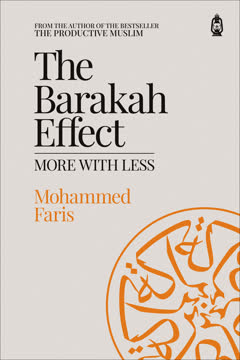
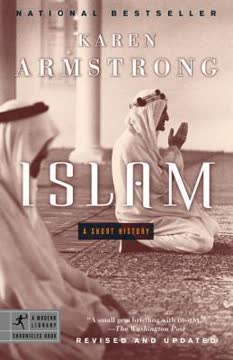
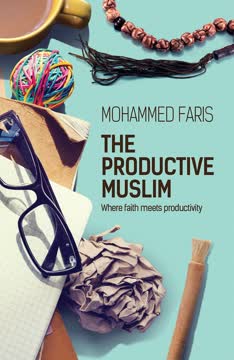
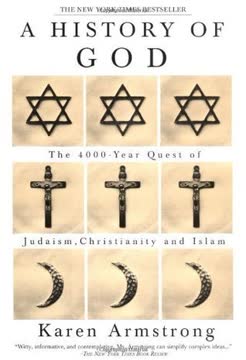
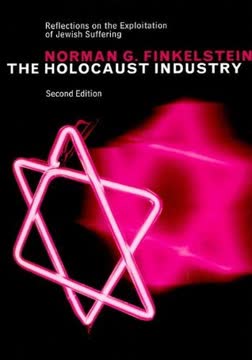
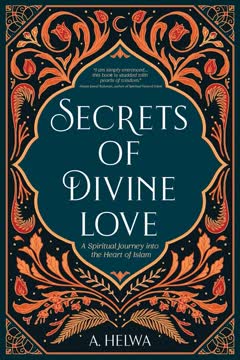
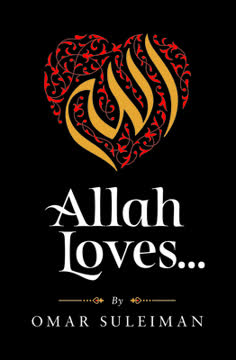

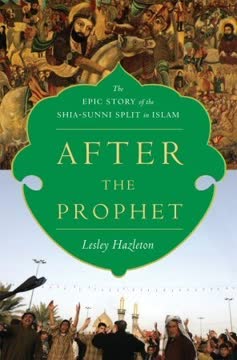
Download PDF
Download EPUB
.epub digital book format is ideal for reading ebooks on phones, tablets, and e-readers.
